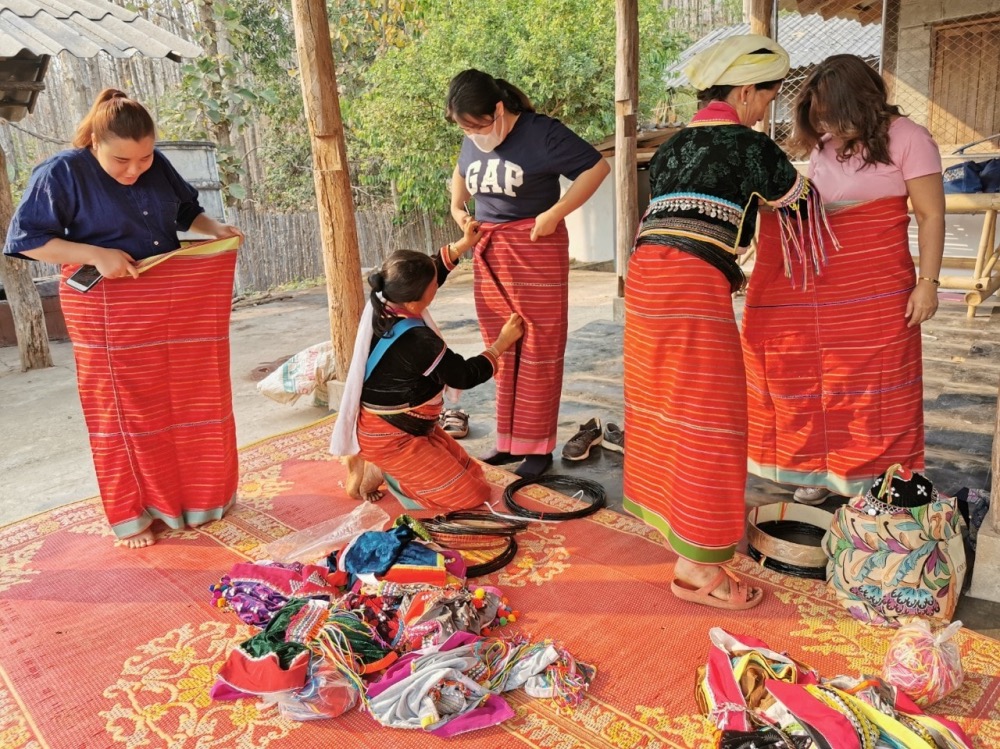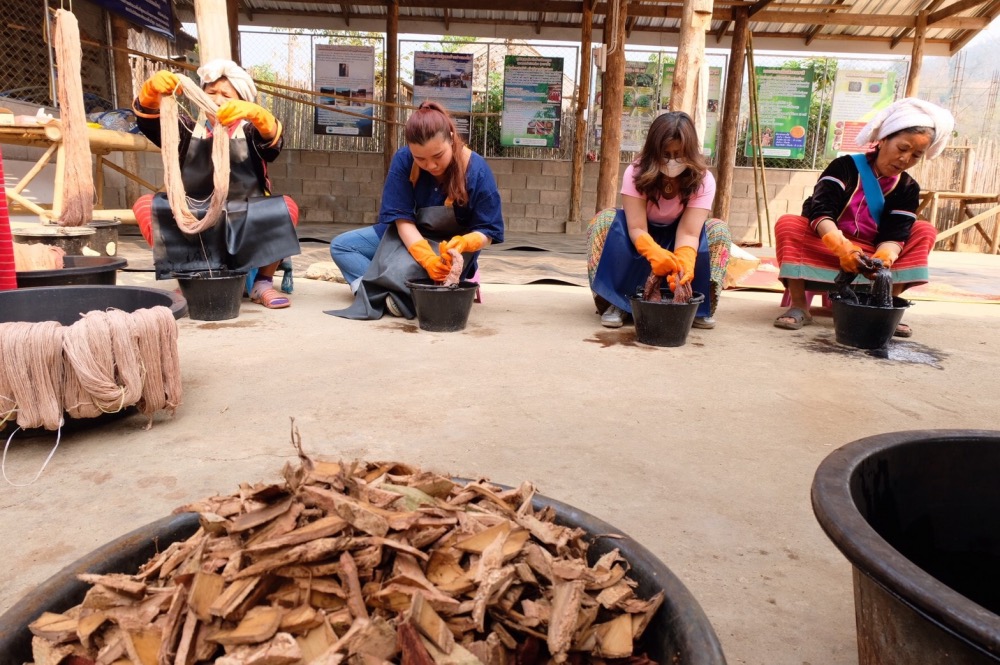
NANCHANOK WONGSAMUTH, of Thomson Reuters Foundation, report on how tourism-related social enterprises in Thailand are weathering the coronavirus storm…
Bangkok, Thailand
Thomson Reuters Foundation
When Thai travel consultancy Local Alike saw its revenue drop to zero due to the coronavirus outbreak, it started selling products from villages through social media.
The business has generated 2.6 million baht ($US84,000) for locals in 20 communities selling products from snacks to rice.
“It exceeded our expectations,” said Somsak Boonkam, founder and chief executive of Bangkok-based Local Alike, which promotes sustainable tourism in 200 villages.
“From now on, we would like to serve as an e-commerce platform for communities.”

Tourists dress in ethnic clothing before they start the tour of a village in Chiang Mai, Thailand, on 28th February. PICTURE: Courtesy of Wocation.
Thailand’s social enterprises have been hit hard by the coronavirus, which has infected more than 3,100 people and killed more than 50 since January.
Although most businesses are allowed to reopen after a decline in new coronavirus cases, the country’s borders are still closed, affecting the tourism industry.
“[The coronavirus] has affected communities that once had income from tourism…And for us, from now on we can no longer operate just as a tour company. Setting up a food brand [that uses products from communities] will lower future risks.”
– Achiraya Thamparipattra, chief executive at HiveSters.
Tourism is a key sector for the Thai economy, accounting for 18 per cent of the country’s gross domestic product last year.
But the industry’s social enterprises – businesses that aim to do good – have adapted through the crisis, while also finding solutions for communities.
In response to high demand for the village products, Local Alike set up a separate company to handle the e-commerce platform, which will expand to 155 communities next year.
It hopes that by helping locals develop the products by improving packaging and product design, communities will be able to earn more.
Other social enterprises like civil society network SATARANA and HiveSters, set up to preserve disappearing cultures and help local communities, have also made online food delivery services a part of their long term business plan.
“[The coronavirus] has affected communities that once had income from tourism,” said Achiraya Thamparipattra, chief executive at HiveSters, which returns 70 per cent of the company’s revenue back to communities through cultural tours.
“And for us, from now on we can no longer operate just as a tour company. Setting up a food brand [that uses products from communities] will lower future risks.”
Hotels and travel businesses expect business to pick up next month following the government’s 22.4 billion-baht ($US723 million) domestic tourism stimulus plan, announced last week.
The package, which is expected to stimulate two million domestic trips from July to October, includes subsidies on accommodation, transport, food and attractions.
Starting next month, Wocation, a tour agency that promotes mental health through craft workshops and group counselling, is looking to bring its workshops – which includes cooking and ceramic classes – to people’s doorsteps.
“Crafts are used by some people to heal their minds, and that can be done at home, which also promotes social distancing,” said Pasiree Parichani, co-founder of Wocation, a social enterprise based in the northern province of Chiang Mai.

Tourists attend a natural dye workshop taught by locals in Chiang Mai, Thailand, on 28th February. PICTURE: Courtesy of Wocation.
An embroidery kit, for instance, would contain woven fabric and naturally dyed yarn sourced locally from Chiang Mai, with 20 per cent of sales going towards locals.
In Bangkok’s Klong Toey district, Wilaiwan Bidinlae saw her income from selling Thai dessert drop by half during the lockdown, losing many foreign customers who used to come in group tours organised by Local Alike.
The company helped package and market her best selling sweets – sticky rice with coconut milk and fried spring rolls – on its social media accounts, which has helped her survive during the crisis.
Klong Toey is the city’s oldest and largest slum, but Wilaiwan says her partnership with Local Alike has helped change that perception.
“Klong Toey has been portrayed in the media as a place with drugs and illegal activities, but when tourists come, they see that we have developed,” she said.





